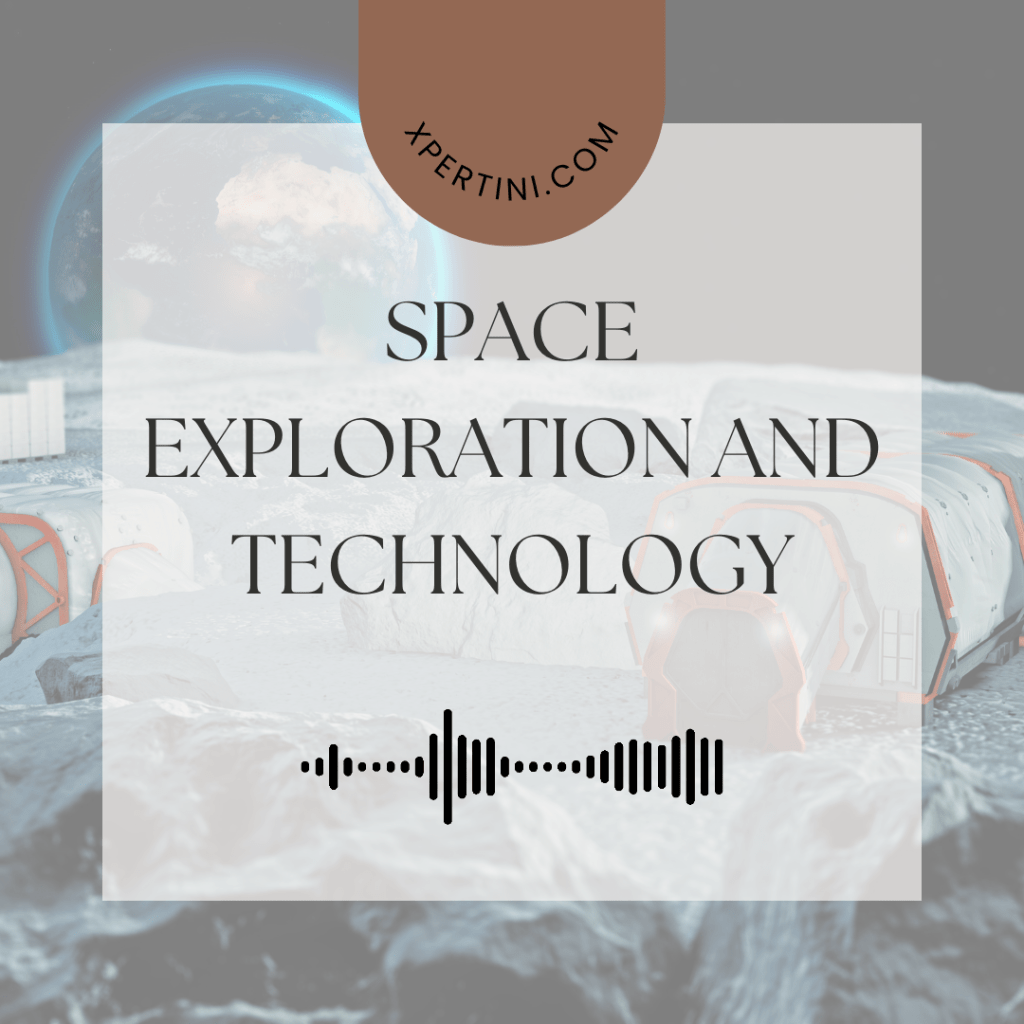Space Exploration and Technology
Course Summary
This course has unveiled the enthralling world of space exploration, immersing participants in the quest for life beyond Earth and revealing the myriad career paths this field offers. A comprehensive exploration has unfolded, delving into the concept of astrobiology—an illuminating scientific endeavor dedicated to revealing the origin, evolution, and distribution of life across the vast cosmos. Additionally, we’ve navigated the details of the search for exoplanets, employing fascinating methods and cutting-edge technologies in the pursuit of identifying potentially habitable worlds capable of hosting life.
The course has thoughtfully illuminated the complexity of biosignatures, those elusive indicators of extraterrestrial life, and the ongoing mission to identify them amidst the vastness of the universe. We’ve examined the promising future prospects of the search for life beyond Earth, driven by the relentless march of technological advancements and the ongoing exploration missions that push the boundaries of our understanding.
Moreover, this educational journey has empowered participants by shedding light on the diverse career opportunities flourishing within the expansive domain of space exploration. We’ve navigated the educational pathways and requisite skill sets demanded by various space-related fields, providing participants with the essential knowledge and resources to embark on their own fulfilling odysseys in this captivating domain.
As you stride forward, it’s crucial to recognize that the human quest to explore the universe and demystify its mysteries is a perpetual and collaborative endeavor. Armed with dedication, perseverance, and an unwavering passion for discovery, each participant has been equipped to play a meaningful role in shaping the future landscape of space exploration. The profound lessons learned throughout this course serve as stepping stones toward a future where the cosmos may reveal its secrets, and individuals, with newfound knowledge and enthusiasm, contribute to the ongoing narrative of humanity’s cosmic exploration. May your journey in the vastness of space be both rewarding and transformative as you embrace the boundless opportunities that lie ahead.
Course Overview
Space exploration is not just about rockets and planets – it’s a field that pushes the boundaries of human knowledge, technology, and ingenuity. This course provides a comprehensive foundation for understanding the history, present, and future of space exploration, from unraveling the mysteries of our solar system to the potential of interstellar travel. By exploring the cutting-edge technologies and the scientific principles behind them, this course will equip you with the knowledge and enthusiasm to navigate the exciting and ever-evolving world of space exploration, whether as a career choice or personal pursuit.
Course Objectives
- Understand the fundamental principles behind space exploration.
- Analyze the historical advancements in space travel and technology.
- Evaluate the impact of space exploration on various scientific disciplines.
- Explore the various technological components involved in space missions.
- Identify the challenges and opportunities presented by space exploration.
Course Outcomes
- Given various astronomical phenomena, learners will be able to explain the fundamental principles of physics and astrophysics that govern them.
- Presented with historical narratives of space exploration, learners will be able to differentiate between key milestones and their significance.
- After interacting with simulations and case studies of space missions, learners will be able to identify the various scientific disciplines involved in space exploration and their contributions.
- Through engaging with interactive models and diagrams, learners will be able to explain the functionalities of key components in spacecraft and launch vehicles.
- Exposed to debates and discussions surrounding ethical and societal implications of space exploration, learners will be able to formulate informed opinions on the related issues.
- Given real-world scenarios, learners will be able to apply their knowledge to propose solutions for potential challenges faced in space exploration.
- Following a guided research project, learners will be able to present their findings on a specific topic related to space exploration, effectively communicating scientific concepts to a general audience.
- Through interactive activities and group discussions, learners will be able to collaboratively develop and present a plan for a future space mission, addressing various scientific and technological considerations.
- Utilizing online resources and career guidance tools, learners will be able to identify and research potential career paths in the field of space exploration.
- By engaging with guest speakers and industry professionals, learners will be able to gain valuable insights into the working environment and career prospects in space exploration.
Course Audience
- Individuals interested in pursuing a career in space exploration, such as aerospace engineering, astrophysics, or planetary science.
- Anyone with a general curiosity about space and the technologies that enable us to explore it.
- Educators who want to incorporate engaging space science content into their curriculum.

